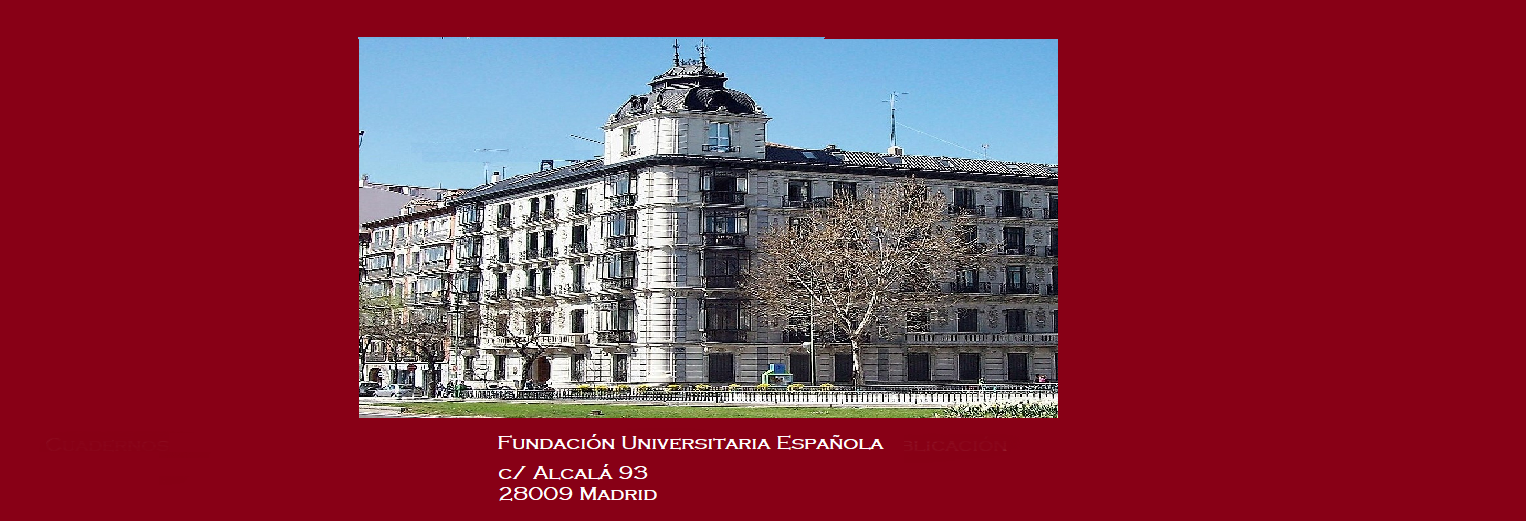Alternative Coping Mechanisms during Francoism in Concha Espina’s «Un valle en el mar»(1950)
DOI:
https://doi.org/10.51743/cilh.vi50.451Keywords:
Trauma, Postwar, Francoism, Sexual Violence, EspinaAbstract
In spite of the fact that Concha Espina’s work is not limited to her Falangist writing, her extensive literary production has received little critical attention. In her novel, Un valle en el mar (1950), as in her works before the Spanish Civil War, Espina contributes to the discussion of Spanish women’s situation, albeit from a
more conservative perspective. The novel, recipient of the Premio Cervantes de Novela (1950), presents the case of Salvadora, a victim of rape. This article illuminates through trauma theory how Espina treats a taboo topic and offers psychotherapeutic strategies as alternative solutions for survival from trauma. While the novel does not present a critique of Francoism, the author points to the lack of social support for victims of sexual assault in addition to the absence of justice for women within the legal system.
Downloads
Global Statistics ℹ️
|
435
Views
|
139
Downloads
|
|
574
Total
|
|
References
Alcalde, Ángel (2021): «Wartime and Post-war Rape in Franco’s Spain», The Historical Journal, 64.4: 1-23. DOI: 10.1017/S0018246X20000643 [12-9-2021]. DOI: https://doi.org/10.1017/S0018246X20000643
Álvarez Álvarez, María (2023a): «La representación de las dos Españas en Retaguardia (1937), de Concha Espina», Impossibilia, 26: 60-73. DOI: 10.30827/impossibilia.262023.28240 [2-5-2024]. DOI: https://doi.org/10.30827/impossibilia.262023.28240
Álvarez Álvarez, María (2023b): «Concha Espina y el “solemne mandato” de la mujer: personajes femeninos y el discurso de la Sección Femenina en Retaguardia (1937)», Itinerarios, 38: 29-44. DOI: 10.7311/ITINERARIOS.38.2023.02 [2-5-2024]. DOI: https://doi.org/10.7311/ITINERARIOS.38.2023.02
Bados, Arturo y Peró, Maribel (2015): «Psychometric properties of the Modified Tonic Immobility Scale», Anales de Psicología, 15.1: 66-73. DOI: 10.6018/analesps.31.1.158071 [12-9-2021]. DOI: https://doi.org/10.6018/analesps.31.1.158071
Bretz, Mary Lee (1980): Concha Espina. Boston, Twayne Publishers.
Bryant-Davis, Thema y Wong, Eunice C. (2013): «Faith to Move Mountains: Religious Coping, Spirituality, and Interpersonal Trauma», The American Psychologist, 68.8: 675-684. DOI: 10.1037/a0034380 [12-9-2021]. DOI: https://doi.org/10.1037/a0034380
Budwick, Emily Miller (2015): «Section II: Golems, Ghosts, Idols, and Messiahs: Complicated Mourning and the International Construction of a Jewish Symptom», en The Subject of Holocaust Fiction, ed. A. H. Rosenfeld (Bloomington, Indiana UP): 121-125.
Caruth, Cathy (2013): «Parting Words: Trauma, Silence, and Survival: Sigmund Freud, Beyond the Pleasure Principle», Literature in the Ashes of History, Baltimore, John Hopkins UP: 3-17.
Dendle, Brian J. (1997): «Solar Imagery in Three Novels of Concha Espina», Anales de la literature española contemporánea, 22. 1/2: 199-209. https://www.jstor.org/stable/27741356 [12-9-2021].
Espina, Concha (1972): Un valle en el mar en Obras completas de Concha Espina, Madrid, Ediciones Fax, II: 133-307.
García de Enterría, María Cruz (1967): «Unas cartas de Concha Espina», Boletín de la Biblioteca De Méndez Pelayo, 43: 283-306. Edición digital de Biblioteca Virtual Miguel de Cervantes, https://www.cervantesvirtual.com/obra/unas-cartas-de-concha-espina-979165/ [12-9-2021].
Gómez-Blesa, Mercedes (2019): «Las modernas del 98», Modernistas y vanguardistas: las mujeres faro de la Edad de Plata, Madrid, Ediciones Huso: 195-318.
González-Allende, Iker (2011): «Las novias de Concha Espina: amor durante la Guerra Civil Española», Revista de estudios hispánicos, 45.3: 527-549. https://digitalcommons.unl.edu/modlangspanish/92?utm_source=digitalcommons.unl.edu%2Fmodlangspanish%2F92&utm_
medium=PDF&utm_campaign=PDFCoverPages [12-9-2021].
Heneghan, Dorota (2021): «Rupturas y contradicciones: Concha Espina y la visión de la mujer en Dulce Nombre (1921)», Hispanófila, 193: 99-112. DOI: 10.1353/hsf.2021.0057 [1-1-2024]. DOI: https://doi.org/10.1353/hsf.2021.0057
Johnson, Roberta (2019): Major Concepts in Spanish Feminist Theory, Albany, SUNY Press. DOI: https://doi.org/10.1353/book66245
Kirkpatrick, Judith A. (1995): «From Male Text to Female Community: Concha Espina’s La esfinge maragata», Hispania, 78.2: 262-271. DOI: 10.2307/345392 [1-1-2024]. DOI: https://doi.org/10.2307/345392
Kirkpatrick, Judith A. (1996): «Concha Espina: giros ideológicos y la novela de mujer», Hispanic Journal, 17.1: 129-139. http://www.jstor.org/stable/44284489 [1-1-2024].
Lee, Deborah A. y James, Sophie (2011): «Understanding your trauma memories: Flashbacks, nightmares, and intrusive thoughts», The Compassionate-Mind Guide to Recovering from Trauma and PTSD: using compassion-focused therapy to overcome flashbacks, shame, guilt and fear, Oakland, New Harbinger Publications: 31-44.
Littleton, Heather (2007): «An Evaluation of the Coping Patterns of Rape Victims: Integration with a Schema-Based Information-Processing Model», Violence Against Women, 13.8: 789-801. DOI: 10.1177/1077801207304825 [1-1-2024]. DOI: https://doi.org/10.1177/1077801207304825
Littleton, Heather y Radecki Breitkopf, Carmen (2006): «Coping With the Experience of Rape», Psychology of Women Quarterly, 30: 106-116. https://doi.org/10.1111/j.1471-6402.2006.00267.x [1-1-2024]. DOI: https://doi.org/10.1111/j.1471-6402.2006.00267.x
Moglen, Seth (2005): «On Mourning Social Injury», Psychoanalysis, Culture and Society, 10.2: 151-167. 10.1057/palgrave.pcs.2100032 [12-9-2021]. DOI: https://doi.org/10.1057/palgrave.pcs.2100032
Morcillo, Aurora G. (2007): «Walls of Flesh. Spanish Postwar Reconstruction and Public Morality», Bulletin of Spanish Studies, 84.6: 737-758. https://doi.org/10.1080/14753820701539349 [1-1-2024]. DOI: https://doi.org/10.1080/14753820701539349
Mullor-Heymann, Montserrat (1998): «“General y señor: yo te bendigo”. Concha Espina y las escritoras partidarias de Franco», Vencer no es convencer: Literatura e ideología del fascismo español, Madrid, Vervuert: 87-99. DOI: https://doi.org/10.31819/9783964564733-006
O’ Bryne, Patricia (2008): «Popular fiction in postwar Spain: the soothing, subversive novela rosa», Journal of Romance Studies, 8.2: 37-57. DOI: 10.3167/jrs.2008.080204 [1-1-2024]. DOI: https://doi.org/10.3828/jrs.8.2.37
Pargament, Kenneth, Harold G. Koenig y Lisa M. Pérez (2000): «The Many Methods of Religious Coping: Development and Initial Validation of the RCOPE», Journal of Clinical Psychology, 56.4: 519-543. DOI: 10.1002/(sici)1097-4679(200004)56:4<519::aid-jclp6>3.0.co;2-1 [1-1-2024]. DOI: https://doi.org/10.1002/(SICI)1097-4679(200004)56:4<519::AID-JCLP6>3.0.CO;2-1
Plak un, Eric (2020): «COVID-19 and Psychotherapy: Addressing Blocked Mourning», Psychiatric News, 55.14: 6, 14. DOI: https://doi.org/10.1176/appi.pn.2020.7b11
Ragan, Robin (2011): «La enfermedad extraña: Inapetencia, Class and Eating Disorders in La esfinge maragata», Hispanic Review, 79.2: 213-233. https://www.jstor.org/stable/41289910 [1-1-2024]. DOI: https://doi.org/10.1353/hir.2011.0027
Rojas Auda, Elizabeth (1998): Visión y ceguera de Concha Espina: su obra comprometida, Madrid, Editorial Pliegos.
Sieburth, Stephanie (2014): Survival Songs: Conchita Piquer’s Coplas and Franco’s Regime of Terror, Toronto, University of Toronto Press. DOI: https://doi.org/10.3138/9781442661448
Ugarte, Michael (1997): «The Fascist Narrative of Concha Espina», Arizona Journal of Hispanic Cultural Studies, 1: 97-114. https://www.jstor.org/stable/20641391 [1-1-2024]. DOI: https://doi.org/10.1353/hcs.2011.0089
Vermetten, Eric y J. Douglas Bremner (2003): «Olfaction as a Traumatic Reminder in Posttraumatic Stress Disorder: Case Reports and Review», The Journal of Clinical Psychiatry, 64.2: 202-207. DOI: 10.4088/jcp.v64n0214 [1-1-2024]. DOI: https://doi.org/10.4088/JCP.v64n0214
Walser, Robyn D. y Darraah Westrup (2007): «Acceptance, Mindfulness, and Trauma: The Problem of Experimental Avoidance and the Verbal Nature of Trauma», Acceptance and Commitment Therapy for the Treatment of Post-Traumatic Stress Disorder and Trauma-Related Problems: A Practitioner’s Guide to Using Mindfulness and Acceptance Strategies, Oakland, New Harbinger Publications: 7-18.
Downloads
Published
How to Cite
Issue
Section
License
The Fundación Universitaria publishing house preserves the copyright of the published works, and favours and allows their reuse, preferably allowing access to the text through DOI, provided that the autorship and the original source are cited and that it is not used for commercial purposes. The signing authors partially transfer the property rights of this work to Fundación Universitaria Española (NIF: G28433670) for the printed and online editions.































